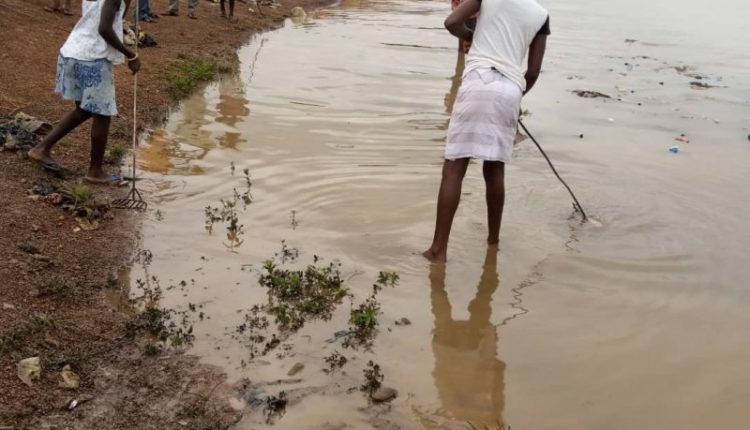The Environmental Health Department in the Oti Region has mounted fortifications against the advance of typhoid disease.
The Department, with the support of the Regional Coordinating Council and other direct stakeholders including community members and the police, is fighting to end pollution of the Oti Lake, on which the area flourishes.
The Ghana News Agency (GNA) was informed of the efforts, at the closeout meeting of a five-year sanitation project of the USAID in the Region.
Mr. Andrew Nawil, Coordinating Director of the Region, told the meeting that the invasion of the typhoid disease followed the long prevalence of sanitation challenges, which was traced to behavioural attitudes of open defecation and improper disposal of waste.
“Typhoid is the most prevalent disease in the Dambai Municipality. Almost everyone entering for the first time is welcomed by typhoid. The water is very bad,” he lamented as he made an appeal that the WASH For Health project which helps bring an end to open defecation in over 200 communities, be extended a while longer.
He told the GNA that the Environmental Health Department was being supported in its sanitation battle, and also to carry on the efforts of Global Communities, the non-profit that implemented the WASH for Health project.
Mrs. Sybil Boison, Regional Environmental Health Officer (REHO), outlined to the GNA that community members volunteered every Thursday to clean up the riverfront and its surroundings.
“We are working at the source to ensure solid waste does not get into the water, and we have made some achievements. Volunteers have been working from as early as 4:30am for the past three months, and individuals support us with brooms, dust pans and other tools,” she said.
The REHO said wire meshes have been installed in drains to keep refuse from reaching the river, and the Department had liaised with waste disposal agency Zoomlion to provide refuse skips at strategic points.
“The refuse goes into the river and we must go into it to remove them,” she noted, and said signposts would be installed to caution against littering.
“The river is the source of drinking water and the idea is to stop the dumping and make sure all stores along drains feeding the river have refuse bins,” she added.
Mrs. Boison said the efforts were ongoing along major river enclaves in the Region, and the Department had created urinals at landing sites, while working to ensure the pontoon was kept “very neat”.
Potable water availability is the major challenge in the water rich Region, and takes blame for dire sanitation outcomes.
President Akufo Addo, in response, recently, announced a multi-million-dollar Dambai Water Project, which would kick off an ambitious effort to pump safe water across the entire Region.
The USAID’s WASH For Health Project is among humanitarian efforts towards addressing sanitation challenges in the Region, and has provided water systems for communities in addition to thousands of household toilet facilities, while working to improve behavioral outcomes in sanitation.
Source: GNA


Comments are closed.